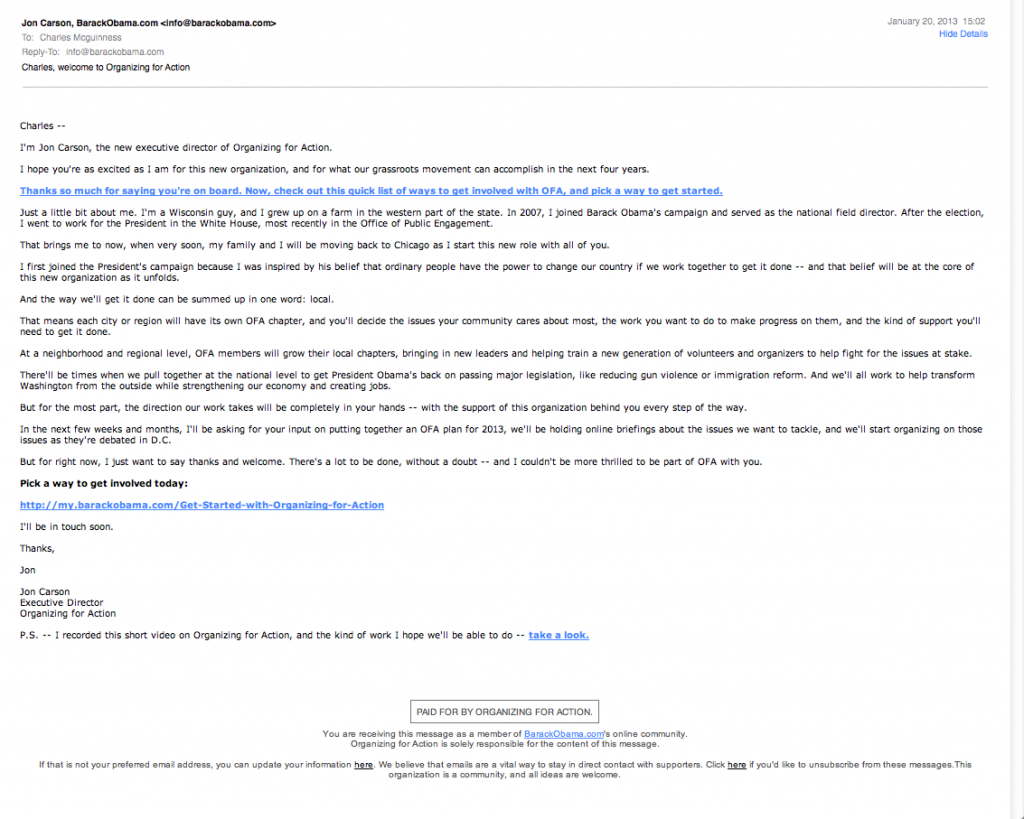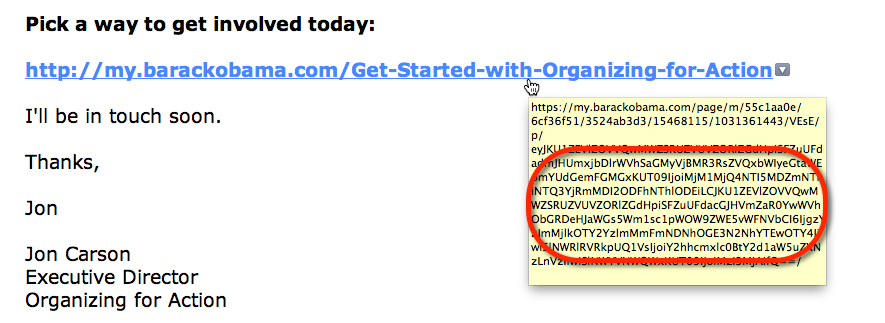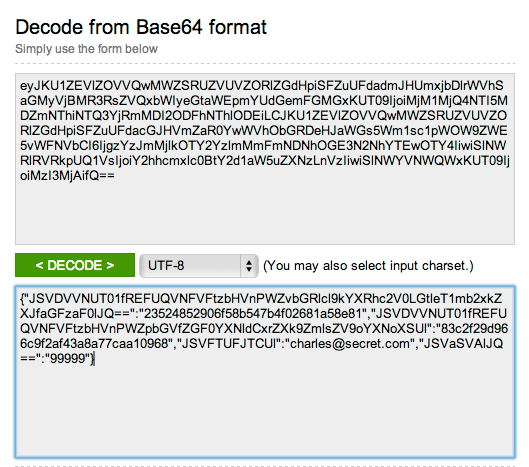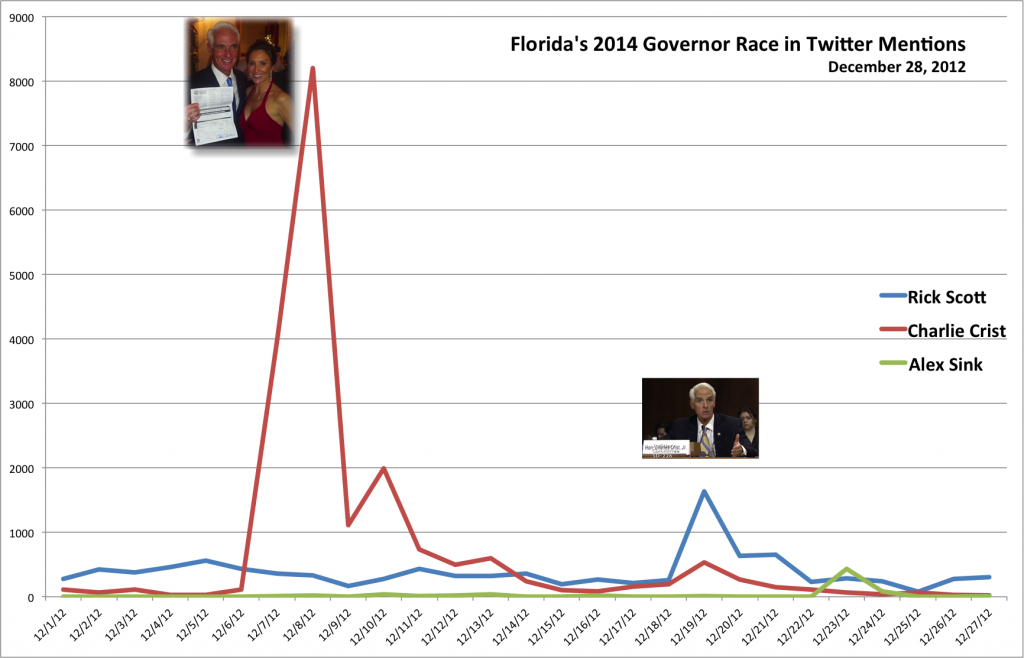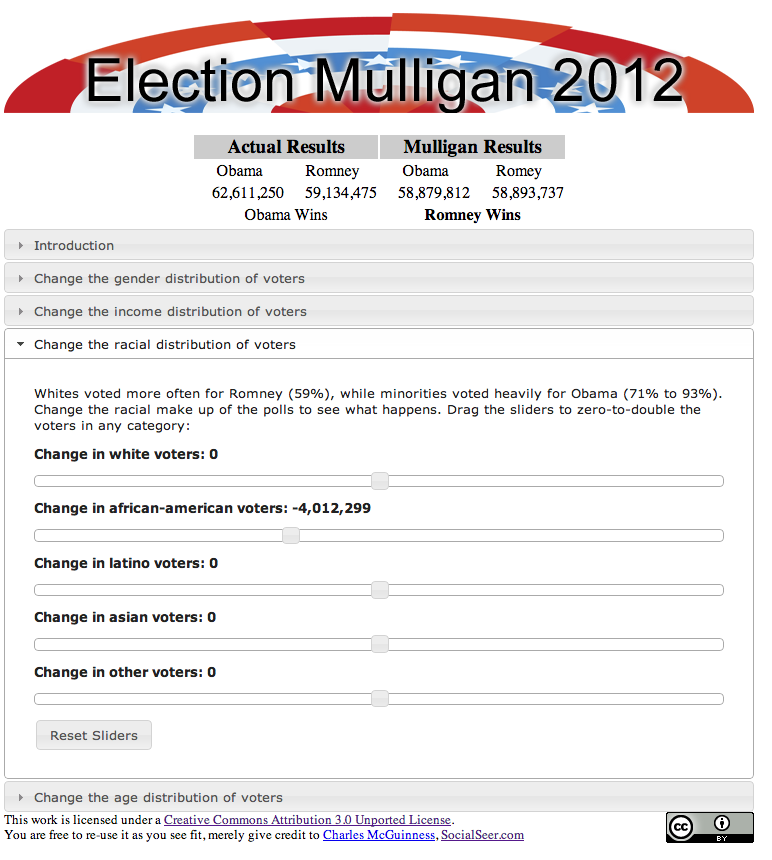There’s no doubt about it, MSNBC has been on fire on Twitter as we close in on the election — people are talking more and more about MSNBC’s shows. Let’s take a look at how the “Point of View” shows (which start at 3pm with The Cycle and run through Last Word plus Chris Hayes and Melissa Harris-Perry on weekends1) have been doing4:
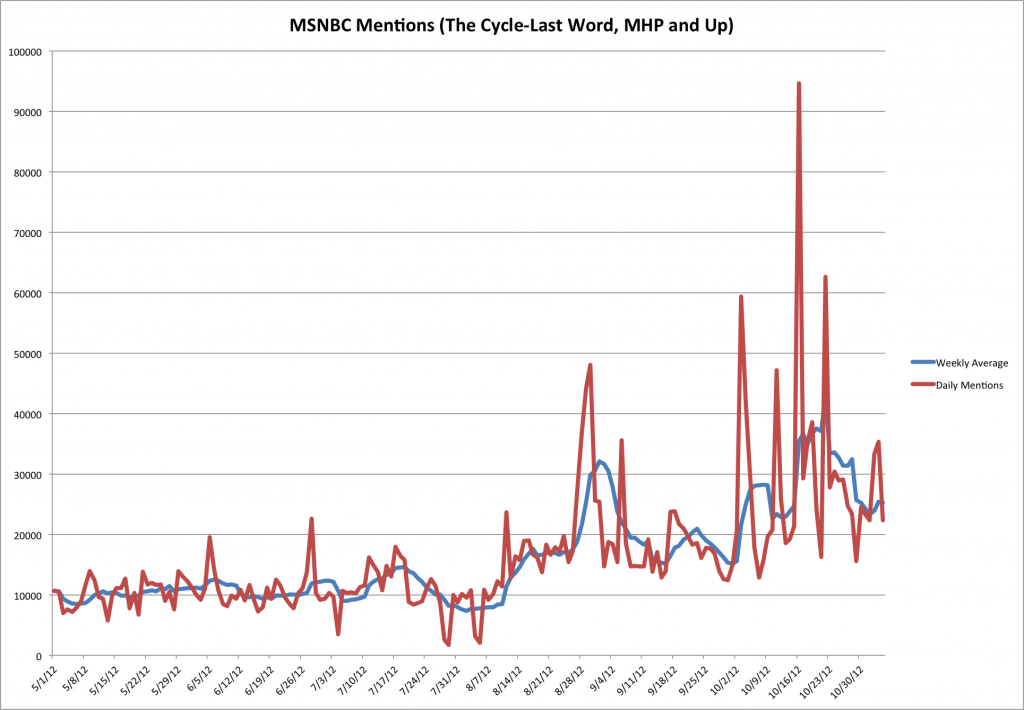
The large spike was the night of the second presidential debate (or, “The return of the Jedi” as I like to call it) — about 100,000 mentions that night. Just amazing. (Conversely, the drop in the middle of the chart was from the Olympics, which preempted much of MSNBC’s programming).
Here’s the charts for the individual shows. For each chart, I’ve plotted the 7-day moving average2:
Up with Chris Hayes:
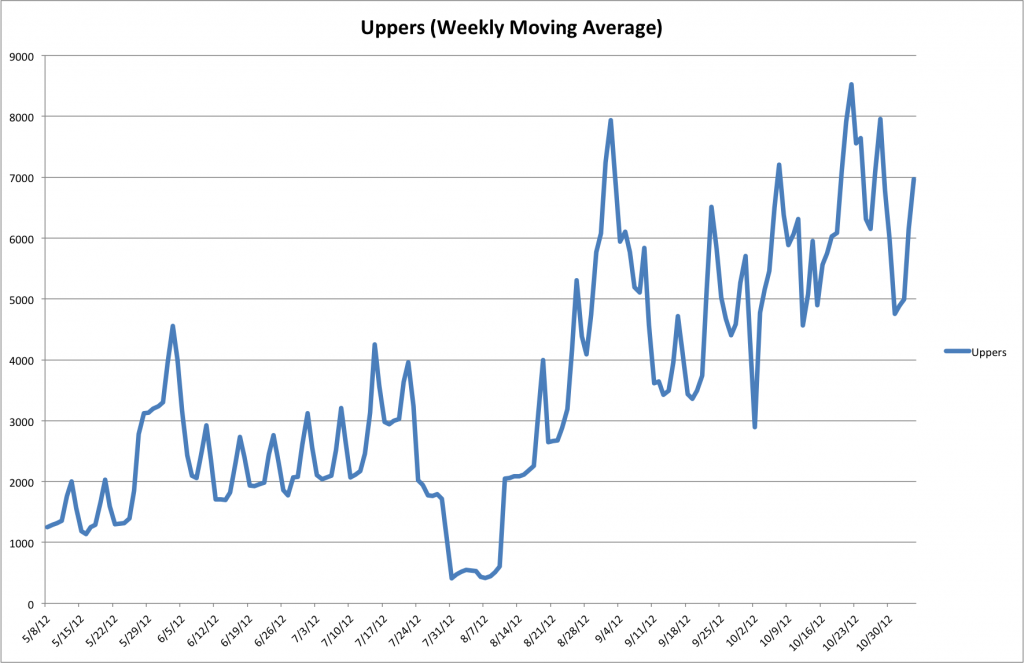
It really is going up.
Melissa Harris-Perry Show:
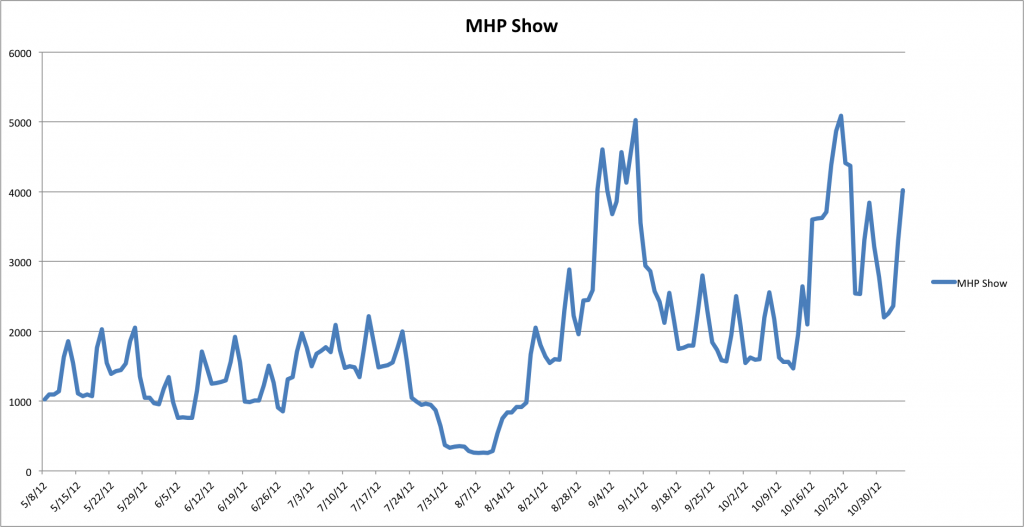
The Cycle (my favorite weekday show on MSNBC, I must admit)5:
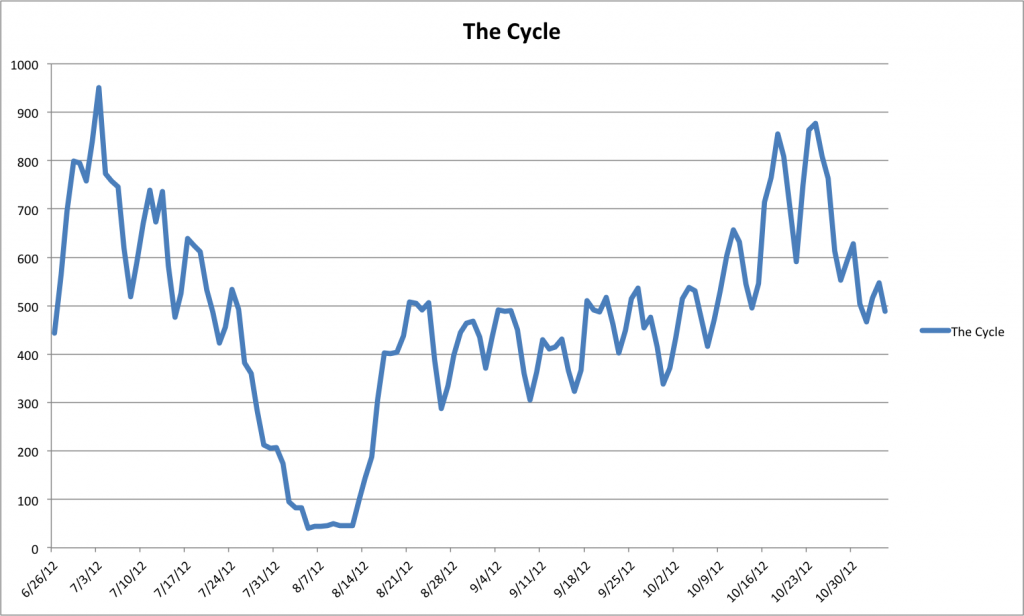
(the recent spikes are around the debates).
Martin Bashir:
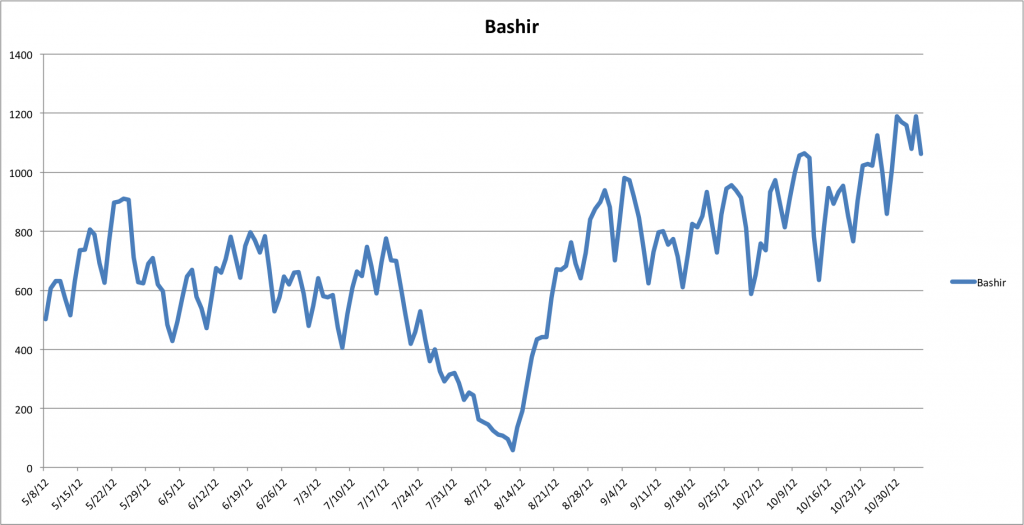
Chris Matthews:
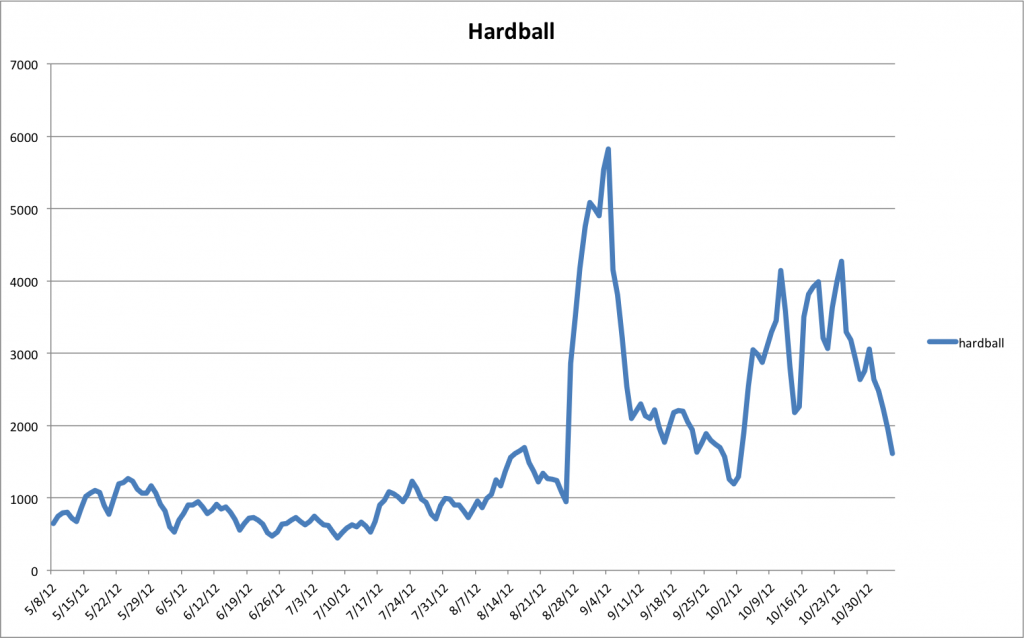
His spike occurred during the Democratic National Convention, which is not surprising, since it was kind of all Chris all the time…
Politics Nation with the Rev. Al Sharpton:
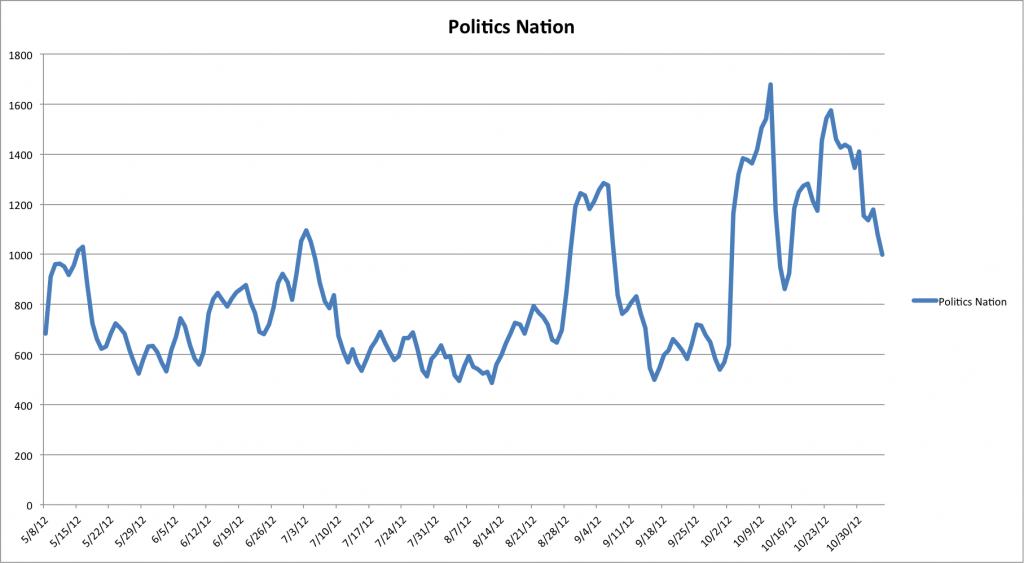
Considering that the show doesn’t push social media as much as others, the Rev. is doing pretty good!6
But the next show in the line up3, The Ed Show, is the master of social media engagement:
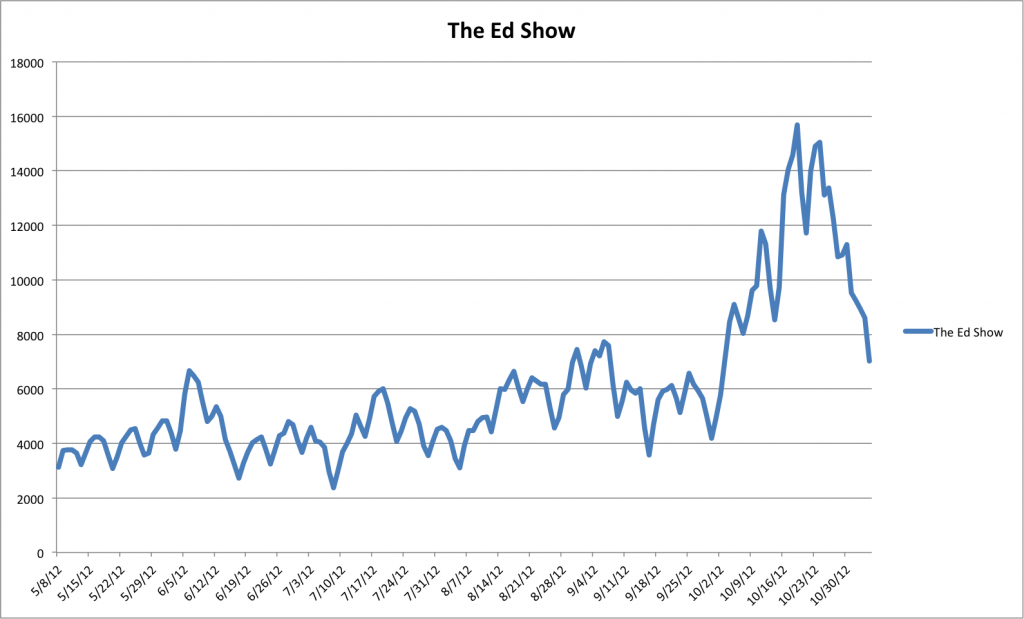
Although the 7-day average doesn’t show it, on the night of the second presidential debate Ed got over 25,000 mentions. That’s a lot of engagement. I don’t know who on his staff handles social media, but they are a social media god.
Ed leads into Rachel Maddow who has the best rated show on MSNBC. And while she doesn’t focus on social media like Ed does, she still pulls in strong engagement on Twitter:
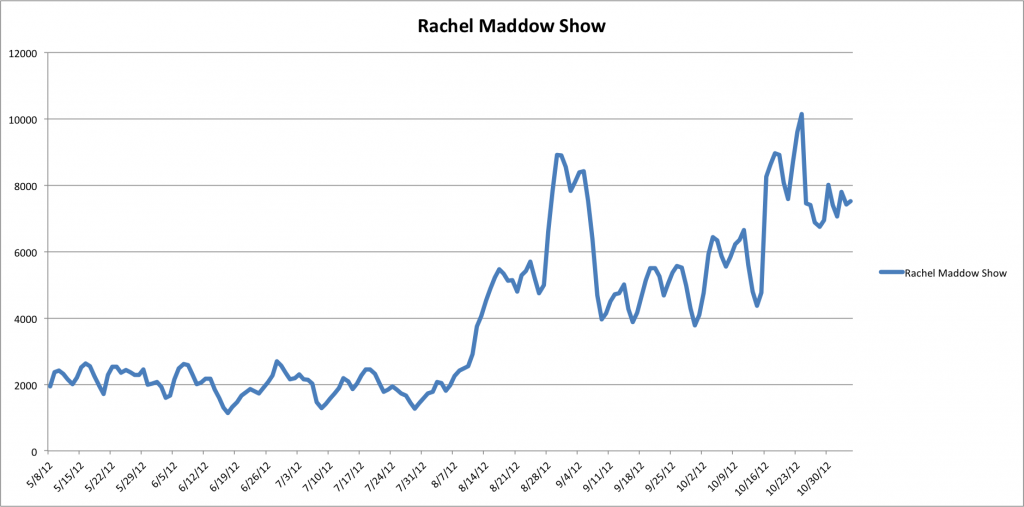
Which leads us to the nightcap of MSNBC, the Last Word with Lawrence:
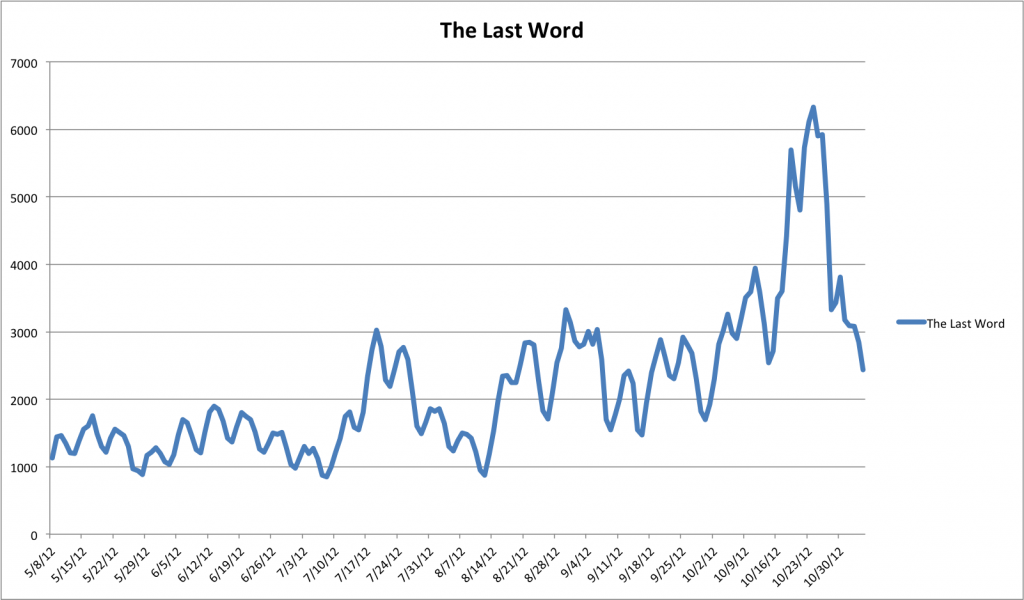
Considering that The Last Word has been a 4 day a week show compared to the rest of them up until the final sprint to the election, when Lawrence has been running 5 days a week, these numbers are quit competitive.
If you want to see, overall, how the various shows are doing, here’s a total of mentions over the last few months:
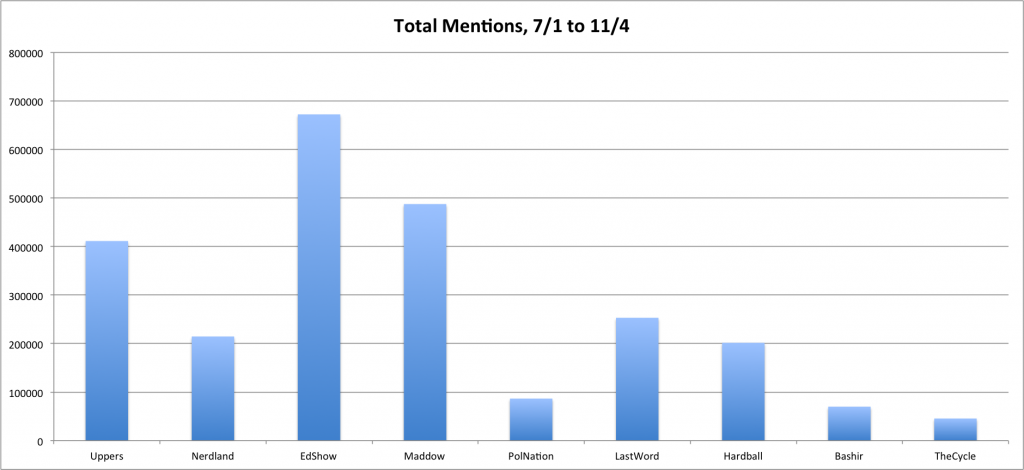
I will point out that the daytime shows took a hit due to the Olympics, which did not affect the evening shows as much. Still, you can see that Ed is the king of social media at MSNBC….
Footnotes:
1 I have come to realize that many of the other shows should be considered “point of view” shows as well — certainly Morning Joe, Tamron Hall, and Alex Wagner have distinctive voices. After the election I will track all of the MSNBC shows more closely.
2 A 7-day moving average adds up the most recent 7 days and then divides by 7, so the # gives you a sense of activity with the day-to-day noise filtered out. It’s a good way of knowing if there’s a fundamental shift in activity as opposed to a one day spike.
3 Strictly speaking, Ed comes after the repeat of Hardball. But we’ve already covered Chris’s mentions, so there’s no point in repeating his counts, just like there’s no point in watching Chris a second time in day ;-). That time slot (or the earlier 5pm slot) would be better filled by a Joy Reid show, I know we can all agree. Come on, MSNBC, make it happen. If you’re holding that slot for Olberman to come to his senses, well, it’s time to move on…
4 I only track explicit mentions of shows, so thinks like the Education Nation or generic MSNBC references are not counted. You can infer that the actual numbers would be higher…
5 It’s hard to get ratings for The Cycle (well, without paying for them), but I have to imagine that they’ve been given one of the worst time-slots available. So I wouldn’t consider their level of overall social engagement to be a bad thing. Still, there’s a lot they could be doing to better engage with social media besides having Touré hold down the night shift on Twitter by himself.
6 Funny thing about Al Sharpton: 25 years ago, I thought he was an opportunist and was suspicious of his motives at times. Now I hold him in high regard. Although we’re both older and more mature, I have to admit that I was wrong about him. Sorry about that, Reverend.

